Empowering Our Students - Let’s Start With Their Names

Written by Anu Roy
Anu is a TeachFirst leadership Alumni and digital trustee and teacher committee lead for charities in England and Scotland. She is currently a digital curriculum development manager and works in inclusive education projects incorporating tech.
I remember as a quiet and nervous NQT attending a meeting where myself and other English staff would chat about our incoming Year 7 cohort. As we worked our way through the Excel spreadsheet, a joke started forming where a member of staff referred to a student as ‘Chaka Khan’- alluding to the famous singer who goes by the same name. It felt harmless and I am sure the intention was not to cause embarrassment or mock names, but it felt wrong regardless. I would know. I am sure this happened when I moved from India to Wolverhampton to start Year 7 in a predominantly white school.
I remember all too clearly squirming at the back of a classroom when a teacher confidently made their way through ‘Beth, Laura, Jess, Zoe’ and then the dreaded moment came closer. The teacher paused, squinted at the list with a frown on their face.
‘Ama?
Amu?
Anaaa…’
Now the girls in the room were sniggering. They glanced back at me quickly and I did my best to force a small, to laugh it off even though I felt so humiliated inside. Especially because at that very moment the teacher who could not pronounce
‘Ah-New-Rad-ha’ gave up altogether and said, ‘it’s too much for me. Can we just call you Annie?’.
To have my name, my Bengali name given to me by my grandfather- a name which means ‘goddess of the gods’- reduced so casually to a westernized format that would be comfortable and convenient for my white teacher set the tone for my experience of education that year in Wolverhampton. It made me squirm whenever attendance was taken, it made me hesitant to raise my hand despite being confident about my subject knowledge and eventually-it made me reluctant about going to school. I wanted to feel invisible, to blend into the classroom walls because I was not British enough, I did not feel valuable.
So fast forward 11 years and now I am the teacher. I am supposed to have more knowledge, more acceptance and confidence. However, in that meeting when this student had their name turned into a joke, I felt the same pangs of feeling small, feeling embarrassed on their behalf.
So I spoke up, “it’s actually Shah-kir. Shakir Khan”. This was followed by some nodding, an acknowledgement of the changed atmosphere in the room and we moved on quickly to the next student.
BAME students experience incidents like this every day and this must change. Here are some simple ways for educators to ensure this is avoided:
- Ask them exactly how you would like their name to be pronounced
- If you can, ask them where their name comes from. Many ethnic-minority names have symbolic religious and cultural meanings.
- Do not hesitate to correct colleagues who mispronounce a name in front of you if you are aware of the correct version
Our names are the blueprint of our identity. Let us ensure we honour this for our students.
Implementing Effective Flexible Working Practices Training for School Leaders
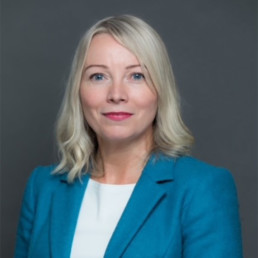
Written by Mandy Coalter
Mandy is the founder of Talent Architects, helping schools be great places to work. She is a published author and was named as one of the Top 10 most influential HR people. She is the former Director of People at United Learning.
Want to better promote inclusive working practices?
Getting more flexible working requests?
Wondering how to retain talent?
Want to enhance your ability to advise on new ways of working, how to adapt, as well as promoting staff wellbeing through flexible working practices?
Our sessions could be for you
The road to a flexible and agile workforce is more important now than ever before, especially in schools. Expanding opportunities for flexible working will be particularly important post-pandemic, where remote and hybrid working have become widespread in some sectors. Creating more scope for flexibility is possible in all roles in a school, promoting a better work-life balance, supporting the diversity and inclusion agenda and addressing the recruitment and retention issues in the sector. Join Timewise, the flexible working experts, and their panellists in a series of webinars, Q&As and drop-in clinics to learn more about what a proactive, whole-school approach is about, starting in October:
Webinar for Heads: Tuesday 05 October at 10am (90 minutes)
Register here https://bit.ly/3jR2pMk
Webinar for School Business Professionals/HR: Wednesday 06 October at 10am (90 minutes)
Register https://bit.ly/2Uc4hXp
Webinar for Governors & Trustees: Tuesday 12 October at 2pm (60 minutes)
Register here https://bit.ly/2VPlc2b
One Year Later: Lessons Learned from a Whole School Approach to Decolonising the Curriculum
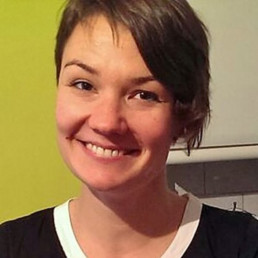
Written by Terra Glowach
Lead Practitioner for literacy and decolonising the curriculum at Cathedral Schools Trust in Bristol
After a year of working with teachers across the curriculum to decolonise, I’d like to pass on some key lessons for new EDI Leads, Curriculum Leads, Lead Practitioners and anyone trying to do similar work in schools.
Here are my top 10. Some of these I got right first try; others I learned the hard way. Hope it helps.
- General reading on the topic of anti-racism, decolonising, and education will give you the knowledge and confidence to have critical discussions, and wider frameworks for doing anti-racism work in schools will give you an idea of where to start. But the impactful work starts when you look at your specific school cohort, the data on ethnicity, outcomes and behaviour, and qualitative data on the experiences of Black and Asian staff and students. Know the specific and concrete issues in your institution. For my school, the issues were a lack of Black representation in the curriculum, the teaching staff, and in top sets. You can’t get people on board unless you can present the problem in cold hard numbers, and show that it’s in their immediate context.
- Seek out local academics who are working on decolonising and race equality within the Education faculty of your nearest universities first, and those passionate enough to work with schools even if they are not in the Education faculty. Teachers are disciplinary experts, researchers, community workers and curriculum designers, but rarely recognised as such. Organising discussions between subject leads and academics working in the same discipline to tackle what decolonising looks like in their subject gives teachers this recognition. Academics have often done their decades in school teaching, and can bring fresh research and challenging ideas to the table. Teachers, in turn, get to practice criticality in the face of research and work out what approach would work best for them in their context. My first go at providing readings for decolonising Maths didn’t stick because it necessitated the addition of history content which the teachers felt was forced. But Prof Alf Coles pointed out that decolonised pedagogy was a powerful way to both respect students’ ways of knowing and improve attainment. Get the experts in!
- Disrupt the school culture and curriculum by centering voices which have been previously marginalised. For example, I got Somali students to teach Somali to their teachers, and prepared form time materials, a whole-school assembly and a scheme of work on Somali contributions to UK communities and literature. Show people that the status quo can shift, and take the blinders off. You have to model decolonising work and show how it creates belonging, a more informed curriculum narrative, and a sense of excitement and discovery – THEN start getting people on board for work across the curriculum..
- If you are white, find the Black and Asian staff in school and the academics and practitioners out in the local community who have been doing this work longer than you and with a far better idea of how and why it should work. Put them forward for the opportunities and pay that you are offered but which they deserve, and watch them knock the dust off your school.
- Model what colonial frameworks and lenses look like in textbooks and in practice – have discussions about the limitations of these, how they position the global majority and the Global South, and the way they reproduce racial hierarchies. So for History, Science or Geography, is the seizure of land from indigineous peoples, the extraction of natural resources and the pollution of their land, air and water presented as an unfortunate but inevitable consequence of competitive capitalism and the discovery doctrine? Do you look at what established, indigenous science and resource management achieved and how this was exploited? Do you consider what fair trade and sustainable, mutual development might have looked like?
- Do form-time focus group and questionnaire research with the students so you promote discussion and give space for students to feed in anonymously. Use the collated data – like the percentage of students who want more Black representation – and powerful anecdotes from students as stimulus for planning. Go back to students with these plans , and check back after a term or a year to ask them how your school is doing. So often we ask for student voice and don’t keep students in the loop. Why not make them your associates?
- Staff need reading and training on how to talk about race, and how to structure and deliver a curriculum that empowers rather than silences, humiliates and traumatises. Just like students, they need to see this modelled in their own discipline (not just yours).
- Students at my school said effective discussion facilitation was key to challenging racist ideas in their curriculum and providing a safe space for people to explore and develop more informed opinions without ego or defensiveness getting in the way. If oracy and explorative discussion isn’t explicitly taught in your school’s classrooms, this may seriously hamper your progress.
- Show off and celebrate the work teachers have done to decolonise the curriculum in your school on a public forum. Think newspaper article, conference, festival, exhibition, trust-wide INSET day. They are leaders and change agents, and deserve recognition. It will also inspire the people waiting in the wings to join in and make a difference.
- You will soon realise that you have only scratched the surface, and that school priorities may change with the news cycle. This is unglamorous, thankless, difficult and ground-up work that has been going on for centuries. You are not a pioneer. Find and maintain your network – you will need each other.
The Important Role of the DEI Leader in Our Schools

Written by Hannah Wilson
Founder of Diverse Educators
In the wake of George Floyd’s murder last summer many people from my network started disclosing that they were feeling compromised – they had been approached to lead DEI in their context, but they knew it was because of their lived experience ie they identify as belonging to one of protected characteristic groups.
Each person shared how they felt the burden of responsibility but also that they were acutely aware of the visibility and the vulnerability of this position. Moreover, most of them had been asked to take on this role for free (ie for love and for passion). They were not being offered additional time, additional training nor additional money.
We created a DM group that soon filled up on Twitter so we created a 2nd one – nearly 100 people who are leaning into leading DEI work in their schools, colleges and trusts. It is notable that the vast majority of these individuals were assigned female at birth and identify as being women. Many have an intersectional identity and are women of colour, women of faith, women who are LGBTIA+ and women who are parents/ carers. An important factor to consider as we bang our drum about asking people to do this work (ie burden and additional load) for free.
In response, Angie Browne and I developed the DEI Leaders Programme to support each individual on their journey to combat the fear, to address the isolation and to create a safe space to explore the vulnerability of this important work. We have both led this work on our own career journeys and navigated the systemic, structural and societal barriers that come with the territory. We have stories to share and war wounds to lick, but we can also share how we shaped our strategies and illustrate the impact we had and the legacy we created.
In addition to the programme, through the #DiverseEd network I created a space each half-term for DEI leaders who are not formally working with us through the programme to come together informally to form a DEI Leaders Network as an opportunity to connect, to collaborate, to peer support and to share the learning. We are also planning an annual DEI Leaders conference to share best practice and deepen knowledge and understanding in June.
I have also begun to collate a recruitment pack of DEI leaders job descriptions, person specifications and adverts so that each individual can negotiate the framing of their role in their school/ trust. The title of the role is up for debate and varies from setting to setting. I share in my training sessions that a trend I have observed in my cross-sector LinkedIn network is that in corporate settings mande D&I/ EDI leads are now being called Head of Belonging. I love this reframe and personally think that the education sector should adopt it too.
It has been heartening to see a flurry of tweets in the last few months of people from our network and from our programme being formally appointed and properly remunerated for this role in our schools. Congratulations to those who have successfully been appointed and those who have negotiated a defined role. This is still the minority but there is a glimmer of hope that organisations are recognising the need for a defined role and remit for whoever is leading DEI.
Our provocation to the school system:
Would we ask a SENCO or a DSL to strategically lead their whole school responsibility without framing their role, giving them additional time, adequately resourcing their area (budget for books/ training) and elevating their sphere of influence to at the very least associate senior leadership?
For all of the schools leaning into DEI work we encourage you to review your infrastructure. The DSL and SENCO do not carry the burden of all of the safeguarding and all of the SEN work on their shoulders – they have a team of people they can distribute the load across, but moreover the collective responsibility of the whole staff team is expected. We believe that DEI needs to be framed in the same way.
We would not ask an adult who had been vulnerable to lead safeguarding based on their lived experience nor an adult with an additional need to lead SENCO without the framing, the training, the support and the accountability around them, once they had been identified as the most appropriate person to lead this work and fulfil the responsibilities of the role. So we should not be approaching the staff of colour, the staff who are LGBTQIA+ to do this work, simply because of their identity, and moreover we should not be asking them to do it without a formal process to identify they are the person who is best-positioned to lead this work, and thereby appointing them, announcing them and appropriately remunerating them.
The role of the DEI Leader in our schools is an important one as it embodies our commitment to this work, it elevates the status of the strategy, it creates visibility in the school of diverse role models, it amplifies the voices of diverse stakeholder groups and it centres belonging in the culture, the curriculum, the policies and the practices throughout the school.
So we need to be very careful that through our DEI strategies we are intentionally dismantling barriers instead of further perpetuating the glass ceilings, the concrete ceilings, the glass cliffs and the pay gaps that already exist in the school system. Formally appointing and remunerating the people leading this work is a great place to start as our schools continue on their journeys to unlearn and relearn why and how representation matters.
“I’m in hospital Liz.”
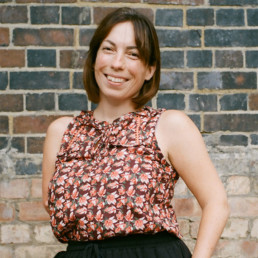
Written by Liz Wright
Elizabeth Wright FRSA is an editor, consultant, speaker, and activist. She brings forth all of her life experience to challenge people around disability, diversity, and inclusion.
I gulped at the message. It was from Jade, my graphic designer for Conscious Being and we were a week out from releasing issue 2. As a magazine editor, as a writer, as a speaker and consultant, I am so used to working to deadlines that my first thought was how are we going to get this issue out on time.
For years now I have been jumping to so many other people’s tunes, to doing everything possible to reach the needs of the client, without actually looking at and addressing my own needs. I am a disabled woman and live everyday with the effects of this identity. Tiredness from PMS, experiences of ableism, and using more energy than a non-disabled person to move my limb different body, is my reality every day, every month. Like a yoyo, my energy levels are unpredictable; my muscle pain is unpredictable. Everything I do, by default, is slower than someone with two hands and two legs. And yet, for years, I would push on, trying to keep up with my non-disabled peers.
In the past year I have decided that enough is enough when it comes to stretching my lovely body beyond its limits – all to please others who don’t know the actual lived experience of my impairment. Boundaries have been key to finding that sweet spot. Placing boundaries around my time and energy levels means that I am finding it a lot easier to say no to people and to stand up for myself in demanding that my needs be met too. The difference in myself has been astounding – I am more productive when working because I have had the rest that I need, I am more joyful, and dare I say it, interesting, because I actually make time to go places and see people. Life has blossomed as it hasn’t done in a very long time.
My activism has gone to the next level too – I am proud of my limb different body and what it has done for me and what I know it will do for me in the future. It has taught me many lessons and given me deep knowledge about the flaws in society and how we have to have structural and cultural change around work and success. My physical and mental fatigue wasn’t because of my impairment, it was because of the undue pressure that society puts on us to be productive and to ignore our very basic human needs to rest and relax.
When I started the magazine Conscious Being, a magazine by and for disabled women and non-binary people, I knew that I only wanted to hire other disabled creatives who deserved a platform and a space of their own. With as fair and equitable pay for these creatives as I could afford. I also knew that I wanted the core editorial and creative teams to feel that their health and wellbeing took precedence over anything else. I never wanted anyone to feel that they couldn’t tell me when they weren’t well and when they needed rest and a day off. I wanted Conscious Being to reflect the core of what I had learnt about taking care of myself – that when we look after and prioritise ourselves and our needs, that is when we can meet the needs of others in a beautiful and empathetic way.
Jade was in hospital and she wasn’t sure how long she would be in there for. As much as a slight panic hit my core first, that residual fear of not meeting deadlines, I knew that Jade’s health and wellbeing was more important than any release date of a magazine. And as Jade’s boss I told her so. I took hold of the reins, I assured her that we would work with her timings and that she had to just focus on recovery now. At the end of the day, disabled or not, we are only human, not machines. And as much as the world we live in would like you to believe that we don’t have a choice, unless your job deals in life and death situations, we can choose to push back deadlines, say no to things, and demand that our needs be met.
Issue 2 of Conscious Being came out on the 7th of September. A week late, but a much better magazine for it. The way the team pulled together and rallied around Jade was inspired. And the end result has been a happier and healthier graphic designer and a magazine and team that we can all be proud of.
—
We would like to thank Diverse Ed for being a sponsor of Conscious Being Magazine – the magazine by and for disabled women and non-binary people. If you would like to be a sponsor in the next issue please reach out to Editor-in-Chief Liz Wright at – liz@consciousbeingmagazine.com
You can grab your copy of issue 2 here – Conscious Being Magazine
The Kate Clanchy Memoir: A Red Flag for DEI
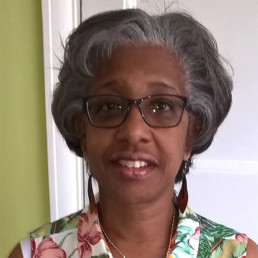
Written by Chiaka Amadi
Chiaka has almost 40 years of experience as a teacher and EAL leader at school and local authority level. Her work as an independent consultant and trainer focuses on language acquisition, literacy development and multilingualism.
In August, I read a succession of tweets about attacks on three WoC writers, Chimene Suleyman, Monisha Rajesh and Sunny Singh which alerted me to the controversy around a book ‘What I Taught Kids and What They Taught Me’. https://minamaauthor.com/2021/08/15/a-controversy-i-recently-read/?like_comment=242
The WoC had challenged the racialised and stereotyped language used by its author, Kate Clanchy, to describe her students. Numerous passages were criticised by a range of commentators citing derogatory descriptions of neurodiverse students; of some students’ choice of clothing; of the very carrying of their bodies. The lively discussion of the book on #DiReadsClanchy was then illuminating in helping me to understand the range of concerns concerning the depictions of the students.
What astonished me the most, however, was how such content could have ever been published as the considered writings of a teacher. How did the editors at Picador, Ms Clanchy’s publishers, perceive her writing? How could those critiqued sections of the book not have rung alarm bells during the editing process?
Even if knowledge of the protected characteristics in the Equality Act 2010 didn’t alert editors to the need for sensitivity and respect in relation to Ms Clanchy’s students, a quick read of Part Two of The Teachers Standards should at least have made them ask if its “high standards of ethics and behaviour” were being fulfilled: https://assets.publishing.service.gov.uk/government/uploads/system/uploads/attachment_data/file/1007716/Teachers__Standards_2021_update.pdf
Did the editors really believe that the words in front of them truly treated pupils with “dignity” and were “rooted in mutual respect”?
It is the children in the book who flag up that there are different life realities, experiences and perceptions at work. Ms Clanchy acknowledges that they teach her “how white I am” and explains to the reader the way the children encode her “super-empowered” membership of the “world’s ruling class” into the word “English”. Did the editors really not feel the need to explore that dynamic both as it appeared on the page and as it evolved as a conceit throughout the book?
Or did Ms Clanchy avoid this particular lesson by diverting to the fact that she is Scottish? This artful manoeuvre leads to the uncritical acceptance by the editors and subsequently by many readers, of Ms Clanchy’s first person narrative. It centres the perspective of a white, middle-class, well educated, abled person as the default for our interpretation. It invites the reader to peer through that particular lens at the students, and as ‘we’ do so, ‘we’ lap up her observations about them and about social matters. ‘We’ are in danger of objectifying and diminishing any student described who does not fit into that normative default, even as Ms Clanchy thinks she is being positive. This is a red flag for DEI activism.
Picador have announced a re-write of the book to remove any “offensive passages”: https://www.theguardian.com/books/2021/aug/10/kate-clanchy-to-rewrite-memoir-after-criticism-of-racist-and-ableist-tropes. Various idioms come to mind, the most polite involving silk purses and sow’s ears. While Ms Clanchy claimed that listening to recent responses to her work had been “humbling”, her publishers by contrast seemed energised, recruiting “specialist readers” to assist with the re-working.
To express my concern at all this, I recently signed an open letter to the publishers: https://docs.google.com/document/d/1EWl1D-Duw2qiwAWUsRANfo8VcqzDMANJ/edit
Picador have now replied to the 350+ signatories of this letter and you can read and evaluate that response here:
https://drive.google.com/file/d/1e0uNH-ivVWBhXav7VD5yl_1mt5CgyAkz/view?usp=sharing.
Please comment if you wish. The feedback is being collated for return to Picador.
I was also pleased to read an open letter from a group of Ms Clanchy’s former pupils: https://www.thebookseller.com/news/clanchy-students-say-they-did-not-experience-safeguarding-or-consent-issues-1278744. I felt able to infer from their articulate and cogent advocacy on behalf of their teacher that their school experiences had contributed to an understanding what it takes to feel part of a community; of the give and take, the to and fro that is part of learning and teaching. They feel safe and confident. Their personal relationship with their former teacher is intact and strong.
However, we cannot shrug our shoulders and say, ‘all’s well that ends well’. To date, no concrete assurances have been given regarding the future ethical standards we can expect from Picador in relation to non-fiction writing about children. The issue is not about the affection or regard that any individuals might hold for others, but the wider debate around representation, ethics, literature and publishing.
As teachers, safeguarding children sits at the heart of our role. All stakeholders in education must ensure that our work does not reinforce stereotypical and clichéd views of children. The whole episode serves as a timely reminder of the need for each of us, in our own contexts to reflect on exactly what our gaze encapsulates. We must consider how our conversations and interactions with, and about children, respect their individuality and humanity. Our words can become wider, more permanent representations of them. We must endeavour to do no harm.
Afro Hair: The Petting Microaggression
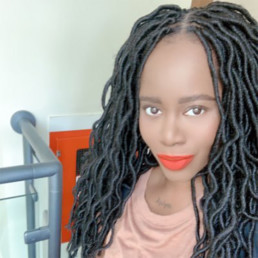
Written by Adeola Ogundele
Adeola Ogundele is Head of Year 9, Head of Media Studies and a Teacher of English who has completed her NPQSL. She is a passionate advocate for Equality and Diversity. She tweets as @ao1982_
As black women, we have a very close relationship with our hair. Our hair is more than just keratin, it’s a badge of pride and honour because of the history behind it. Let’s celebrate World Afro Day on 15th September with the global The Big Hair Assembly.
In the late 1700s to the 1800s, there was a law – the Tignon Laws. This law demanded that women of colour cover their hair with fabric cloth. This law was introduced to curtail the growing influence of the free black population and keep the social order of the time. It was believed that black women were exhibiting unacceptable behaviours, which included the hairstyles they wore. These hairstyles drew the attention of white men. Black women were, apparently, wearing their hair in such lovely ways; adding jewels and feathers to their high hairdos and walking around with such beauty and pride, that it was obscuring their status. This disrupted the social stability of white women. Therefore, the law was introduced to minimise a black woman’s beauty. In many societies, white women would cut off a black woman’s hair, as they felt that her hair ‘confused white men’.
Without the fancy hairstyles of black women, white women believed that black hair, in its natural state, was ugly. White was the epitome of beauty, the straight hair and the fair skin. So, the further a person was from fitting with that ideal, the more unattractive they were deemed to be.
Slavery was abolished in the 19th century. As black women were free, they felt pressure to fit in with the European ideals and therefore adapted their hairstyles.
‘Black people felt compelled to smoothen their hair and texture to fit in easier, and to move in society better and in camouflage almost,’ says exhibition producer Aaryn Lynch.
‘I’ve nicknamed the post-emancipation era ‘the great oppression’ because that’s when black people had to go through really intensive methods to smooth their hair. “Men and women would put their hair in a hot chemical mixture that would almost burn their scalp, so they could comb it back and make it look more European and silky.’ Chemically straightening hair was often called relaxing the hair, a problematic term. Or perming the hair, as it was permanently straightened – until the new growth came through and you’d have to apply more chemicals to the new growth.
During the civil rights movement, black people began wearing their Afros and it was seen as a political statement and a form of rebellion. Black people felt a sense of pride and as they protested against racial segregation and oppression, the eye-catching style took off – an assertion of black identity in contrast to previous trends inspired by mainstream white fashions. Unfortunately, that’s all the Afro was, a political statement and a form of rebellion. When in fact, an Afro is the natural state of a black person’s hair. However, because black women have adapted to the European beauty ideals for so long, the Afro and the Afro hairstyles are seen as against the ‘norm’.
It was only when I was in my early 30s that I knew what my natural hair texture was like. There is a range of natural hair types. My hair is probably a 4a with some parts that are 4b and it is also very thin. I have always known that it was thin but I never knew the texture of it. I never knew the texture because my mum relaxed/permed my hair when I was really young. While I was in school, most of the black girls also had relaxed/permed hair. It was believed to be ‘easier to manage’ and it also ‘looked nicer’ – because it was straight. Obviously, these were unconscious ideas that were ingrained within us as a result of white supremacy.
This Morning presenter, Eamonn Holmes, told Dr Zoe Williams that her hair reminded him ‘of an alpaca’. He continued with, ‘You just want to pet it.’ Dr Zoe Williams laughed along and jovially responded with, ‘Don’t touch my hair!’.Black women have been faced with several micro-aggressions regarding their hair and the way to navigate it and to avoid being referred to as angry, is to laugh along. However, Dr Zoe William’s reference to the very well-known phrase ‘don’t touch my hair’ is an indication that she didn’t receive Eamonn Holmes’ comment well.
According to a study conducted earlier this year, it was found that black people experience ‘racial trauma’ because of frequent afro hair discrimination. At least 93% of Black people with Afro hair in the UK have experienced microaggressions related to their hair, and 52% say discrimination against their hair has negatively affected their self-esteem or mental health. So, describing a Black woman’s hair as animal fur and saying that you would like to ‘pet’ it, contributes to this damaging trend of ‘othering’ by treating Afro hair as a fascination. It is also very offensive.
Many people may fail to understand why comments about black hair can be so damaging, considering hair being superficial. But Afro hair is, unfortunately, political. Black people are punished and excluded from certain spaces because of the way their hair grows naturally on their heads.
‘Hair is a sensitive topic for black and mixed-race women as a lot of us still struggle with how to manage it, along with a lack of diversity in products in mainstream stores – so it’s like twisting the knife.’ says Keisha East, natural hair blogger and influencer.
Keshia adds that black women already feel pressure to conform to European beauty standards, particularly in professional spaces. ‘It can be really damaging to our self-esteem,’ she adds. ‘Quite frankly, negative conversations around our hair can be exhausting, as we already face so many other challenges.’
There is a culture of it being okay to be ignorant towards black hair. However, why are so many ignorant towards our hair? It’s because we either straighten it, to fit in with social norms or wear extensions as a form of protection and/or to hide it away because we know that our hair is not seen as acceptable in a professional setting.
We often find that white people have a desire to touch our hair because it’s ‘different’ and they’re curious. However, this is a huge invasion of our privacy and, considering that black women are underrepresented in the media and the representation usually being where we fit the European beauty ideals, touching our hair and the fascination with our hair, is a symptom of unconscious bias informed by white supremacy. In the context of the history of black people’s bodies and looks being objectified, dehumanised and marginalised, the impulse for white people to touch black women’s hair sends the message that our bodies are there as objects to be touched and looked at.
I’ve never looked at a white person’s straight hair and been shocked by it or found it amazing. I’m also used to seeing it, as it’s what the media and society has told me is the ‘norm’ and therefore, beautiful. However, a black person’s hair isn’t seen the same way. The way a black person’s hair grows out of the head is seen as something of an amazement, a form of rebellion or unprofessional.
There has been the rebuttal, ‘My hair is curly and people always want to touch it, and I’m white.’ Right! That’s the point being made. People want to touch your curly hair because it’s seen as an anomaly. It’s not seen as ‘normal’ hair, hence people being fascinated by it. Also a white person’s curly hair is probably a 3b at most. Black people have curly hair (mainly type 4 hair), it’s our normal – but not the norm.
This needs to change.
Improving Support for LGBT+ Young People in Schools and Colleges
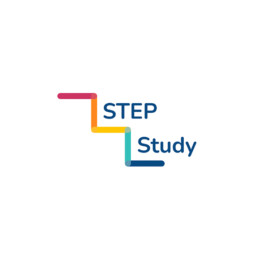
Written by STEP Study
The Schools Training to Enhance support for LGBT+ young People (STEP) study, funded by the TRIUMPH network, is being co-led by a research team at the ESRC Centre for Society and Mental Health, young people, and the Mosaic LGBT+ Young Persons Trust.
For many LGBT+ young people, school can be a place of growth—a “home away from home”—or an environment just as bad as the alternatives.
Bullying and peer victimisation experiences such as violence, anti-LGBT+ language, exclusion, and pressures to conform are all more common for LGBT+ students. These experiences adversely affect mental health and well-being, such as a sense of belonging, feelings of physical and psychological safety, and access to support. These things contribute to higher levels of problems such as depression, poor body image, self-harm, substance misuse as well as suicidal thoughts and behaviours among young people who identify as LGBT+.
Teachers and other staff who create more accepting environments can break this cycle. To support LGBT+ students, it is important that they understand LGBT+ issues and how being LGBT+ might affect students; and stand up for them and actively challenge bullying and discrimination, to create more accepting environments and help prevent mental health issues.
The Schools Training to Enhance support for LGBT+ young People (STEP) study, funded by the TRIUMPH network, is being co-led by a research team at the ESRC Centre for Society and Mental Health, young people, and the Mosaic LGBT+ Young Persons Trust. We are working together to:
- Identify what training is already available to school/college staff
- Understand what makes it easier or more difficult for schools to access training, and to find ways to support uptake for different schools/colleges.
- Improve training for secondary schools/colleges to better support LGBT+ pupils, focusing on what young people and staff think is important for school/college staff to know.
We want to ensure that our work is intersectional. We are learning more about how schools and colleges can better support the well-being of all young LGBT+ people. This includes minoritised racial and ethnic groups and faith communities, young people from low-income families, as well as young people living in rural and coastal areas.
So far, we have conducted interviews and focus groups with training providers in the UK to learn more about what their training covers, how it’s developed and links to student mental health. Through these conversations, we have started to identify barriers that schools face in taking up and implementing training to support LGBTQ+ students.
Next, young researchers will lead group discussions with pupils (aged 13-19 years) and school staff to identify what they think is important for school staff to know.
We will then hold two creative workshops, both co-led by young researchers and including:
- Students aged 13-19 years: to identify and design potential improvements to existing training.
- School/college staff and people who run teacher training courses: to design ways to increase training uptake by schools.
We will use our findings to recommend changes to schools training, and to plan a larger research project to test out these improvements in terms of their impact on young people’s mental health.
Get involved in the STEP study
We are currently recruiting i) young people (aged 13-19), ii) school staff and iii) providers of training to schools on LGBT+ issues to take part in an interview or focus group, and/or a creative workshop co-led by young researchers. Please get in touch if you would like to get involved and feel free to share with anyone who may be interested.
We would particularly like to hear from you if any of the following apply:
- You identify as LGBT+
- You identify as Black African, Black Caribbean, Asian, Latin American, Middle Eastern, from a mixed or any other racial or ethnic background
- You are a person of faith
- You live in a rural or coastal area
Why is the STEP study important to young people?
Juliet, student and young adult researcher in the STEP study coproduction team
“I think this project is really important to young LGBTQ+ people, because when we get together as a community, we see that there are huge school to school and regional differences, in how topics like relationships and sex education are addressed. And that this also influences young people’s obviously mental health and coming out journeys, or many of them struggling with their sexuality. A good school versus a bad school, can mean the difference between getting into a good university versus, and having a good job, versus not being very successful in life.”
Further information
To get involved in the project or for more information visit: http://www.stepstudy.co.uk/
You can also e-mail: steps@kcl.ac.uk
Follow us on Twitter: https://twitter.com/TheStepStudy or Instagram: https://www.instagram.com/thestepstudy/
Engaging and Empowering Students in DEI Work
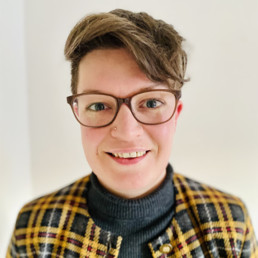
Written by Lois Nethersell-Webb
Lois is a History teacher and DEI Lead at a rural Norfolk High School. In this role she is leading whole school training on diversifying the curriculum. Lois is also a founder of the Norfolk DEI Network and is passionate about encouraging and guiding young people to become change makers.
What kind of adults do we want our students to become? Do we want them to passively accept the status quo or do we want them to become active citizens who question the world around them? If the latter, then we must model and shape this behaviour in schools by providing them with opportunities to express their views and lead on causes that ignite their passions.
Students need to see that becoming involved in DEI work within schools or, indeed, wider society, is a sign of strength. When the government views standing up for marginalised groups as ‘woke’ we are fighting a populist narrative. Educators need to demonstrate to students that standing up to a friend who uses racist or homophobic slurs is not woke, it is strength. Educators need to demonstrate to students that calling out your mate who has made sexualised comments to a female student is not woke, it is strength. Educators need to demonstrate to students that refusing to mimic the accent of a new teacher is not woke, it is strength.
One way that schools can demonstrate active citizenship to the pupils in their charge is through setting up intersectional diversity groups. Whilst student groups focused on one particular protected characteristic, such as Pride Club, have their place, an intersectional group enables students with different protected characteristics, and their allies, to come together and support each other. We must create safe spaces for students to discuss concerns and lived experiences before supporting them to curate ways in which to spread their narratives across the whole student body.
Our student Diversity, Inclusion, Campaigns and Equality (DICE) group have been instrumental in raising awareness of a number of societal issues. Whether it be a cube of truth focused on male mental health or the lunchtime climate change protest, our students have thought of innovative and engaging ways to enlighten the wider student body and get them thinking about how change can happen. Showing students how to use their voice for good and how to channel their views is an essential part of their education.
All too often running student groups, like DICE, is left to chance. If there is a member of staff with a protected characteristic or who has a particular passion for DEI work then the student groups are formed. This should not be the case. LGBTQ+ teachers are tired of being the ones to start the Pride Clubs in schools. Black teachers are tired of being the ones who support students who have experienced racism. We need our allies. We need other educators, particularly white, able bodied, cisgendered male educators, to stand with us and help set up student groups. The power you hold is immeasurable. Help us set up our student groups and demonstrate that DEI work is the work of all.
To create a truly diverse, equitable and inclusive society all adults, no matter their lived experiences, must see tackling injustice and inequality as their responsibility. For this to happen we must start by showing students that DEI work is a collective responsibility. If you want to help your students become young changemakers – set up an intersectional student DEI group; neither you nor your students will regret it.
Global Learning, Digital Global Citizenship and the SDGs – 8 Learning Opportunities for SEND Settings
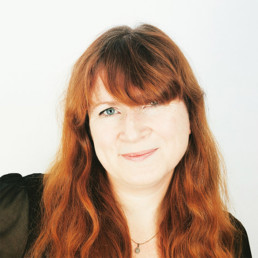
Written by Dr Harriet Marshall
Head of Educational Research at Lyfta and has been a global education advocate for over 20 years, as a teacher, researcher, consultant and education project leader.
The challenge of bringing the outside world into an indoor learning space has had a lot of attention recently as a result of ‘lockdown-learning’ requirements. However, many in the field of global learning have been actively working on this pedagogical task for decades in a variety of ways. Recently, practice has been ramped up a gear, thanks to youth mobilisation to stop climate change, David Attenborough’s chart-busting ‘Our Planet’, the UN’s 17 Sustainable Development Goals (SDGs), and a new range of digital global citizenship education opportunities.
Global citizenship education, sustainable development education or human rights education can be an empowering, enriching, and transformative educational experience. The extent to which UN states also believe this work crucial is manifested in Target 4.7 of the SDGs:
By 2030 ensure all learners acquire knowledge and skills needed to promote sustainable development, including among others through education for sustainable development and sustainable lifestyles, human rights, gender equality, promotion of a culture of peace and non-violence, global citizenship, and appreciation of cultural diversity and of culture’s contribution to sustainable development. (Source: sdgs.un.org)
The 2030 Agenda for Sustainable Development, the resolution adopting the SDGs, pledged to ‘leave no one behind’ and recognises the dignity of all and equality among all. The plan therefore rightly highlights an opportunity to consider complex global issues relating to equality, diversity and inclusion in all sorts of settings – including schools.
There are many ways in which schools are opting to bring in global learning – from school awards (such as UNICEF’s Rights Respecting Schools) to working with regional Development Education Centres to engaging in programmes like the British Council’s Connecting Classrooms. Some teachers are familiar with publications such as Oxfam’s Guides for Teachers on the ‘Sustainable Development Goals’ or ‘Global Citizenship Education’ and so use these to identify a curricular and pedagogic strategy right for the needs of their students. Research hubs such as the Development Education Research Centre (UCL London) have also now established global learning as a credible educational field by researching practice around the world and producing peer-reviewed publications such as the International Journal of Development Education and Global Learning. However, we do not yet know enough about effective global learning practice in SEND settings – but we do know that some exciting and transformative practice is taking place.
An increasingly popular methodology for supporting global learning and empathy-building combines both an ancient pedagogic technique with a modern-day one – storytelling and film making. We believe in capturing human stories through powerful short films which can then be turned into 360-degree interactive spaces for learning. Through this, students and teachers can navigate a virtual globe, explore different countries and visit various storyworlds. The films offer a unique glimpse into someone’s life and/or home and a snippet of how they see their lives and the world at a particular moment in time. No story provides a complete picture of an issue, but it helps bring things to life for students by using real-world examples and themes. Aligning this with lesson plans and resources mapped to the UN’s Sustainable Development Goals will also help build cultural awareness and global citizenship amongst students.
Let’s take a look at some of the ways in which global learning can positively impact students with special educational needs (SEN) and/or disabilities by drawing upon schools already doing this through various global learning methodologies:
- Enhancing independent learning and confidence building: Most case studies and reports emphasise how digital global learning resources can enhance independent learning and build confidence – something educators working with students with SEN have especially noticed and appreciated. One teacher from Elms Bank school has been using Lyfta’s global learning immersive digital stories with her class of students with autism. Although at first sceptical about how students might respond to the international storyworlds and subtitles, she noticed the extent to which the children engaged and empathised with the people featured in the stories and how it opened up opportunities for them. The teacher explained, “it brings the outside world into the classroom without having to go anywhere… it immerses them and engages them in a world which isn’t open to them, which they would find so difficult to be able to go and travel to places and talk to people…it allows them to do that without having to leave a space… without the pressures of unknown and the pressures of communication which might happen, they can become more independent”. Another example relates to how teachers and students are often similarly unaware of the details of global learning issues and this more level knowledge playing field can be empowering for students – offering them an opportunity to lead on topic direction or independent exploration on a range of levels.
- Supporting blended, remote and flexible learning: Global learning through immersive platforms can support a blended learning approach in a variety of settings. Digital resources that offer flexibility and choice about delivery methodology support SEN teachers in their unique settings. From a group of physically disabled students in Finland who have enjoyed the post-viewing discussions after watching real-world videos covering specific scenarios and themes to a UK teacher in an alternative provision setting who found students actually participated thanks to the option of collectively inputting ‘student’ responses to global learning questions (thus navigating obstacles to participation such as the shame felt by ‘poor spelling’).
- A useful opportunity to map, connect and combine different global learning approaches and pre-existing activities: Combining a whole school award with deeper-dive resources can provide the collective overview and the bespoke teaching methodologies required for SEN settings. For example, one teacher from the Venturer’s Academy said “I work with students who require a lot of sensory input to their learning so I’m using Lyfta to support them by creating an immersive learning experience. We are a Rights Respecting School and the platform works alongside this perfectly, enabling me to fully embed the Rights and SDGs across the school.” Other teachers have talked about how the practice of reflecting upon where global learning is already taking place in the school (such as gardening projects for sustainable and healthy lifestyles or international school-linking initiatives) can be helpful in many ways.
- Increasing engagement with physical activity (and other subjects): The UN’s SDGs combined with an immersive digital global learning resources can support PE teaching with children with SEN. For example, alongside the Youth Sport Trust and Lead Inclusion Schools across the country, we created a guide that uniquely connects PE, school sport and health and wellbeing together through immersive storyworlds aligned with the UN’s SDGs. The aim was to provide practitioners with the opportunity to engage young people in their schools that may not have previously accessed school sport, and develop confidence to access new opportunities, with the long-term outcome of increasing take up in physical activity.
- Global learning resources offering a non-sequential (and non-hierarchical) ordering of themes can fit in well with student interests and curriculum topics and priorities. Global learning is a lot about values and attitudes, but it is also about real world knowledge which has been reported as being perceived to be both relevant and interesting by students. Teachers in SEN settings have also talked about how immersive technology and storytelling can be used within a range of subjects, providing links and continuity to support student understanding.
- Global learning and digital global citizenship resources can be a way of teaching across different age-groups. Linked to point 5, opportunities for vertical teaching strategies are often useful when working with mixed-aged groups of students with different needs. The consistency of common themes can also assist in transition work.
- Building intercultural understanding and meeting those from other countries without traveling: One teacher at Rivermead School (post-16 Partnership) said how much she had enjoyed seeing her students engage with resources: “I work with students with SEN and we are a very small provision (seven students) but I have loved seeing their reactions and behaviour during our sessions where we discover new worlds. They are very respectful of other cultures and it is lovely to hear them discuss these later on that week or even a few weeks later.” Another teacher who worked with students with autism said that it was a unique opportunity for students to feel part of the world and meet people from other cultures or countries when they are highly unlikely to in their non-digital lives in the near future.
- A useful pedagogic technique for bringing in PSHE, relationships, challenging stereotypes, life-skills and self-care themes. Storytelling can help reinforce life-skills around subjects such as hygiene and health by addressing these themes but in a different context. The same can be applied to introducing more sensitive topics such as stereotyping and difference.
Prior to 2020, we could not have predicted the vital role remote learning would play in delivering the curriculum and enhancing human connection at a time of physical disconnection. While most evidence here is anecdotal and there is a need for more rigorous research on the extent to which global learning can facilitate a greater understanding of other communities and cultures, there are several educators working with children with SEN who have discovered many reasons to be optimistic. In fact, some settings may even be able to lead the way in developing innovative and useful methods, strategies and pedagogies when working with digital global learning resources.
If you would like to hear more about Lyfta or access free teacher training and trial access, sign up here.

